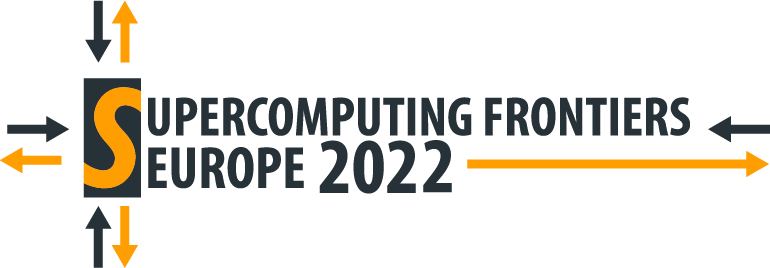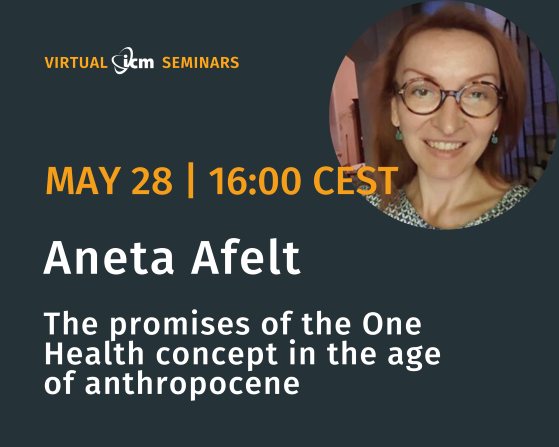The promises of the One Health concept in the age of anthropocene – a lecture by dr Aneta Afelt, a health geographer who predicted the coronavirus pandemic
Dr Aneta Afelt is a health geographer working on epidemiology at the global scale. She will talk about how demaging natural socio-ecological niches might lead to new epidemics. Dr Afelt predicted the coronocvirus pandemic over a year before it broke out. Dr Afelt’s virtual lecture will be broadcasted live on May 28, at 16:00 (CEST).
DATE&TIME
Thursday, May 28, 2020 at 4:00 PM CEST
PLEASE REGISTER AT
http://supercomputingfrontiers.eu/2022/tickets/neijis7eekieshee/
ABSTRACT
In May 2019 an article was published: Anthropocene now: influential panel votes to recognise Earth’s new epoch situating at the stratigraphy of Earth’s history a new geological epoch – the domination of human influence on shaping the Earth’s environment. When humans are a central figure in an ecological niche it results in massive subordination and transformation of the environment for their needs. Unfortunately, the outcome of such actions is a robbery of natural resources. The consequences are socially unexpected – a global epidemiological crisis. The current COVID-19 pandemic is an excellent example. It seems that one of the most important questions of the anthropocene era is how to maintain stable epidemiological conditions for now and in the future. The One Health concept proposes a new paradigm – a deep look at the sources of our well-being: our relationship with the environment. Our health status is interdependent with the well-being of the environment. It is clear that the socio-ecological niche disturbance results in the spread of pathogens. Can sustainable development of socio-ecological niches help us? Let’s take a look at the results!
ANETA AFELT
Aneta Afelt, PhD, is a geographer working in the area of health geography. Her research interest is the One Health concept, where environment, epidemiology and epizootiology are considered as interconnected processes located insocial-ecological niches. She has shown through her research that the destruction of ecosystems results in epidemiological consequences. She works at the Interdisciplinary Center for Mathematical and Computational Modeling of the University of Warsaw, Poland, and is currently a Guest Researcher at Espace-DEV, IRD – Institut de Recherche pour le Développement, Montpellier, France. She is also a member of the scientific committee for Covid-19 of the Ministry of Science in Poland and a scientific consultant of the European Research Agency for actions dedicated to Covid-19.
SELECTED PUBLICATIONS
Genetic diversity of coronaviruses in bats in Lao PDR and Cambodia. [Infection Genetics and Evolution, 48 (2017) 10–18]
Incidence of dengue and chikungunya viruses in mosquitoes and human patients in border provinces of Vietnam [BioMed Central, Springer Nature, 9 November 2017]
Japanese encephalitis in Indonesia: An update on epidemiology and transmission ecology [Acta Tropica, 187(2018), 240-247]
Distribution of bat-borne viruses and environment patterns [Infection Genetics and Evolution 58(2018), 181-191]
Bats, Coronaviruses, and Deforestation: Toward the Emergence of Novel Infectious Diseases? [Frontiers in Microbiology (11 April 2018)]
Bats, Bat-Borne Viruses, and Environmental Changes [in: Bats, IntechOpen (July 4th 2018)]
FOOTAGE OF ALL PREVIOUS Virtual ICM Seminars in Computer and Computational Science
CAN BE FOUND HERE (http://supercomputingfrontiers.eu/2022/past-seminars/):
- Franciszek Rakowski, “Predicting the course of the COVID-19 epidemic in Poland”
- Cathrine McGeoch, “What do we know about performance of quantum annealing systems?”
- Simon Mutch, “HPC Simulations of the early Universe”
- Michael Bussman, “The discovery machines – how supercomputers will shape the
future of data-driven science” - Erol Gelenbe, “A Dynamic Self-Aware Approach to Cybersecurity”
- Scott Aaronson, “Quantum Computational Supremacy and Its Applications”

